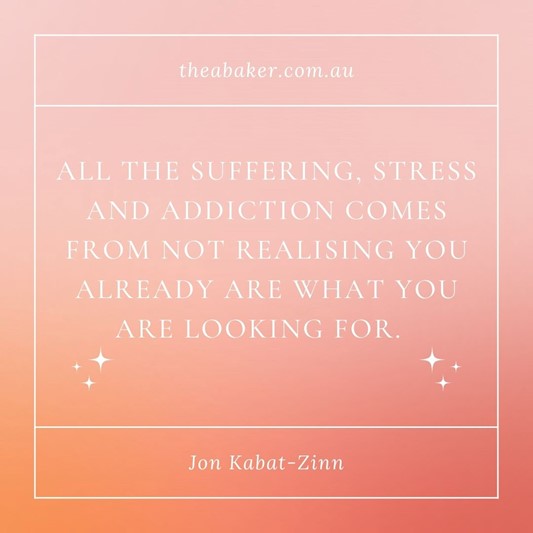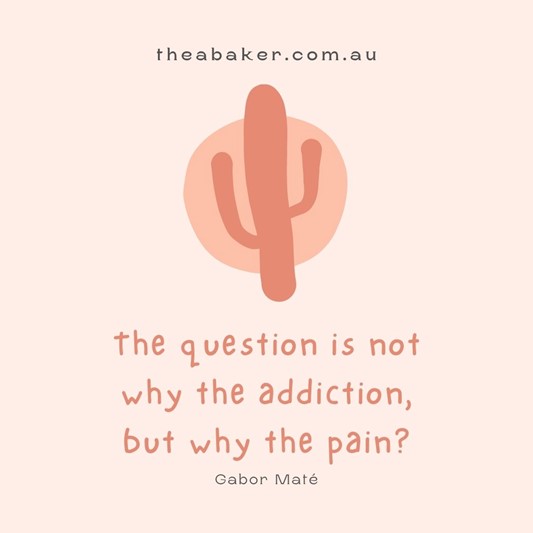Addiction
Addiction
Humans are designed to move toward pleasure and avoid pain. It’s one of those instinctual drivers that has ensured our survival thus far. There’s a fairly delicate balancing act that goes on to ensure that we remain on just the right side each of them. And in our modern-lives, rife with consumerism, with easy-access to so much that creates deep pleasure for us, is not surprising that there are not only increasing rates of addiction, but there is also a lot of attention on expanding research and new approaches to recovering from addiction.
Clinically speaking addiction occurs when someone uses a substance, or engages in a behaviour, for which the rewarding effects provide a compelling incentive to repeat the activity, even in the presence of detrimental consequences. Addiction can involve the use of substances such as alcohol, opiods, recreational drugs, nicotine, or behaviour such as gambling, pornography, shopping. According to Gabor Maté, addiction is any behaviour that gives a person temporary relief and pleasure, therefore craves, suffers negative consequence from, and has trouble giving up.
Symptoms of addiction:
Recurrent use of a substance, or engagement with an activity, that leads to impairment or distress, is the core of addictive disorders. The clinical diagnosis of an addiction is based on the presence of at least two of a number of features:
- The substance or activity is used in larger amounts or for a longer period of time than was intended.
- There is a desire to cut down on use or unsuccessful efforts to do so.
- Pursuit of the substance or activity, or recovery from its use, consumes a significant amount of time.
- There is a craving or strong desire to use the substance or engage in the activity.
- Use of the substance or activity disrupts obligations at work, school, or home.
- Use of the substance or activity continues despite the social or interpersonal problems it causes.
- Participation in important social, work, or recreational activities drops or stops.
- Use occurs in situations where it is physically risky.
- Use continues despite knowing it is causing or exacerbating physical or psychological problems.
- Tolerance occurs, indicated either by need for markedly increased amounts of the substance to achieve the desired effect or markedly diminished effect of the same amount of substance.
- Withdrawal occurs, manifest either in the presence of physiological withdrawal symptoms or the taking of a related substance to block them.
The severity of the condition is gauged by the number of symptoms present. The presence of two to three symptoms generally indicates a mild condition; four to five symptoms indicate a moderate disorder. When six or more symptoms are present, the condition is considered severe.
Causes of addiction:
According to Maté, addiction “originates in a human being’s desperate attempt to solve a problem: the problem of emotional pain, over overwhelming stress, of lost connection of loss of control, of a deep discomfit with the self”. Research has shown that there is evidence for what is colloquially termed an ‘addictive personality’. Using the definition above, it would be hard to find many people who couldn’t say that they were addicted to something.
We know that trauma (particularly childhood trauma), family history / factors, genetic predisposition and environment all play a part in addiction.
Treatment of addiction:
Developments in neuroscience and work from people like Dr Anna Lembke, have shed important light on what it is about certain substances, experiences and behaviours that are so hard to give up. The role of a neurotransmitter – dopamine – appears to be key in the experience of pleasure and pain in humans. This research, when combined with the work of Maté and others in the trauma field have added to the existing approaches to working with addition.
Whilst addiction has historically been the domain of the ’12-Step’ program or inpatient withdrawal treatment stays (‘rehab’) there are a range of alternatives:
- Dopamine resets and fasts
- Psychotherapeutic modalities (e.g., EMDR, IFS, EFT, Schema Therapy) to work through the core traumas, wounds, parts, beliefs and emotions – the pain that needs healing from
- Whole-person centered therapies that are mindfulness-orientated and that view addiction through the lens of compassion and trauma, as opposed to the western medicine, symptom-focused, disease approach that has so often been the mainstay of mental health.
If you need support around addiction or trauma, we have a team of relationship therapists at Thea Baker Wellbeing – please reach out to us at: hello@theabaker.com.au / 03 9077 8194.


